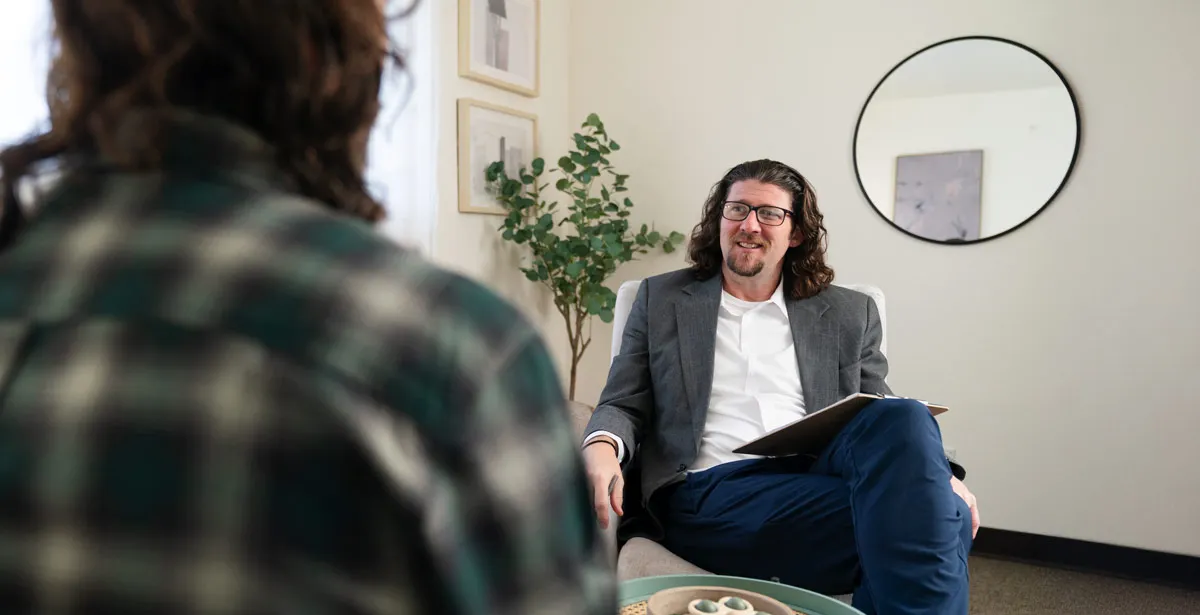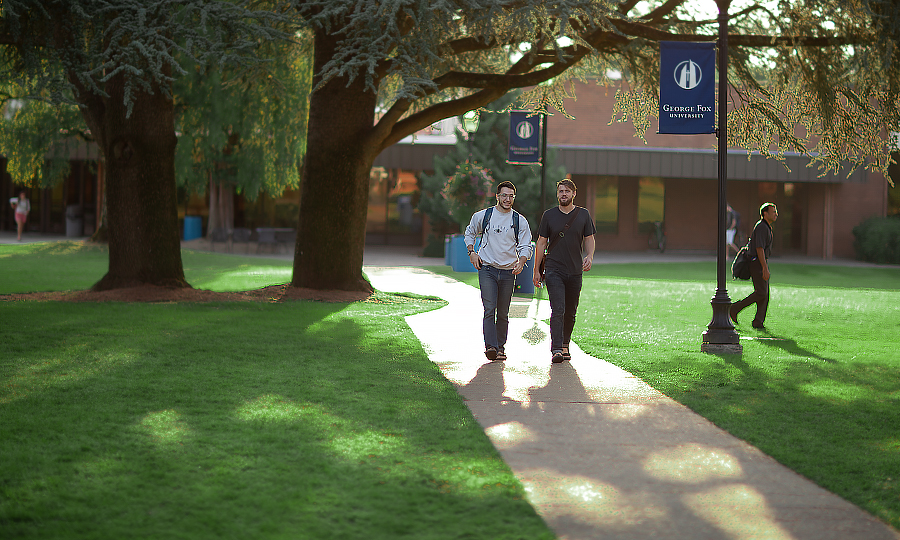
Clinical Practicums and Internships
Transform Theory Into Impact
To become a licensed psychologist is to commit yourself to the sacred work of restoration – helping others find hope, resilience and meaning amid struggle.
The journey through George Fox’s PsyD program immerses you in a sequence of supervised clinical experiences that integrate psychological theory, scientific research, and spiritual care. Each practicum and internship placement becomes a living classroom where faith, science and humanity meet to bring healing to a hurting world.
Your Pathway to a PsyD
At George Fox, your PsyD journey moves beyond textbooks – beginning in Year 1. It’s then you engage in simulated psychotherapy, preparing you for a wide range of hands-on practicum (field training) sites in your second year, and interest- and setting-specific opportunities in your third.
Following pre-internship training sessions in Year 4, your education culminates with a full-year, full-time internship at an APA-accredited or APPIC-approved site in Year 5.
This structured path ensures you don’t just learn about psychology – you practice it, refine it, and become the practitioner you aspire to be.
Practicum Possibilities
Clinical training is a fundamental element of the George Fox PsyD program. As students complete their masters and doctoral degrees, they engage in hands-on practicum (field training) experiences at a wide range of locations. Among the possibilities are medical centers and clinics, K-12 public schools, college counseling centers, community mental health centers, and forensic placements.
Practicum Placements
- 20% Child & Adolescent
- 45% Medical
- 15% Community

The clinical training program is highly structured and the development of clinical skill is sequential, graded in complexity and cumulative with each training year building on the previous experience.

FIRST YEAR - Clinical Foundations
During the first year in the program, all students enroll in the Clinical Foundations course, which offers the opportunity to develop foundational skills through the use of lectures, skill-building, small-group meetings and individual feedback. All students have the opportunity to participate in simulated psychotherapy by providing services (10 sessions) to volunteering university undergraduates. All sessions are recorded and reviewed by the student, the teaching assistant and the professor.

SECOND YEAR - Practicum I
Students have the opportunity to choose from a range of practicum sites and are encouraged to seek placements where they can work with a broad range of clients. In addition to their on-site practicum supervision, students continue to participate in on-campus training activities, including weekly small-group meetings led by a clinical mentor.

THIRD YEAR - Practicum II
Students gain experience in their particular area of interest, whether with a specific population (child, adolescent, adult) or a specific setting (medical, university). Students are encouraged to apply for practicum-training experiences based on their short- and long-term professional goals. Students continue to participate in on-campus training oversight activities.

FOURTH YEAR - Pre-Internship
Students engage in training opportunities that will increase the breadth or depth of their clinical skills. Pre-interns continue to participate in on-campus training activities and begin providing oversight supervision to second-year students. During this year, students are also assisted with preparation for internship applications and placement.
FIFTH YEAR - Internship

A student’s internship is the culmination of the previous four years of training, and for most, is a full-time, one-year clinical placement with a stipend from the internship site. Internship training occurs at APA-accredited and APPIC-approved sites, including veteran hospitals, university counseling centers, medical centers, forensic hospitals and community mental health centers.
George Fox University’s doctoral students are highly valued in the field and have practiced in a wide range of sites serving many demographics.
Past Internship Placements
The Clinical Team Model
Providing Support from Practicum Through Internship
George Fox students receive additional training and support from clinical teams composed of six to eight students at various levels of training and faculty members, who serve as a clinical mentor for the academic year throughout their practicum experiences and pre-internship training. Teams are reorganized each calendar year, offering students exposure to a variety of supervision styles and case conceptualization models throughout their training.
A clinical mentor meets weekly with small groups of students at various levels of practicum training to enhance the clinical skills and professional growth of each student. Students present clinical cases and discuss diagnostic, therapeutic, ethical and case conceptualization issues with the team. The clinical mentor provides constructive feedback to enhance student clinical skills.
Pre-interns are trained in developmentally-appropriate supervision skills through a combination of academic coursework, weekly practice with Practicum I students, and oversight from their clinical mentor. They can apply the skills they’ve gained in their previous three years as they assist with supervision of Practicum I students.